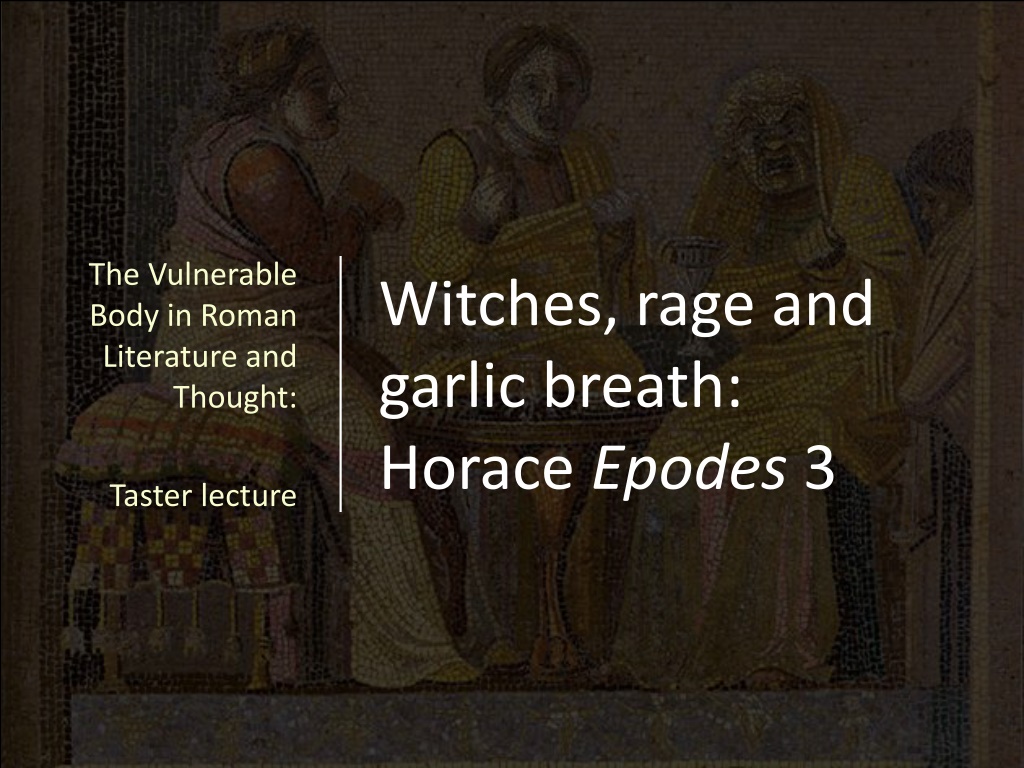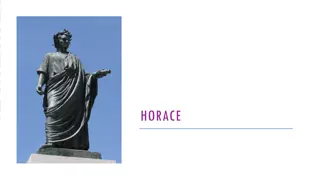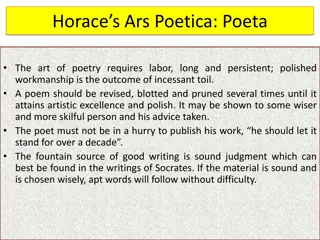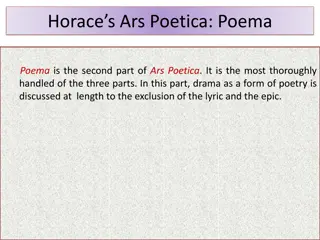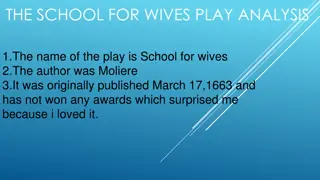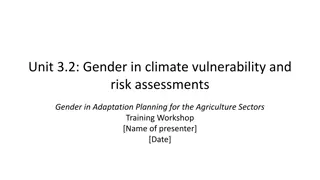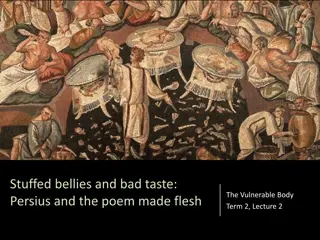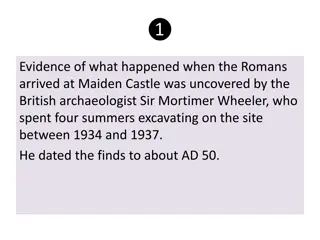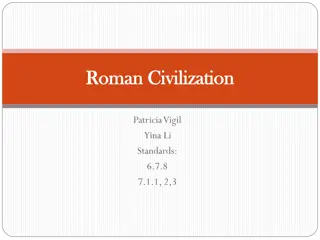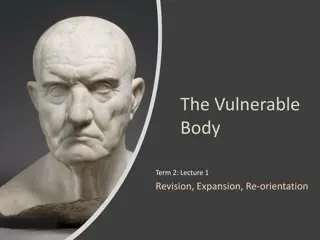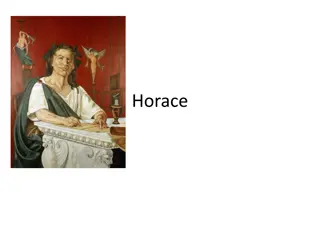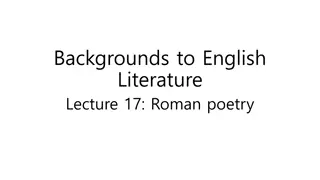Exploring Vulnerability and Power in Roman Literature: Horace's Epodes and More
Delve into the themes of vulnerability, power, and fragility in Roman literature through the works of Quintus Horatius Flaccus, known as Horace. Explore the use of witches, garlic breath, and rage in his Epodes, while also examining the broader concepts of aging, modern parallels, and societal challenges. Follow Horace's life from his humble beginnings to his influential friendships and literary contributions, offering a unique perspective on ancient Roman culture and thought.
Download Presentation

Please find below an Image/Link to download the presentation.
The content on the website is provided AS IS for your information and personal use only. It may not be sold, licensed, or shared on other websites without obtaining consent from the author. Download presentation by click this link. If you encounter any issues during the download, it is possible that the publisher has removed the file from their server.
E N D
Presentation Transcript
The Vulnerable Body in Roman Literature and Thought: Witches, rage and garlic breath: Horace Epodes 3 Taster lecture
In translation Ovid, Amores 1.1, 1.2, 1.3, 1.5, 2.7, 2.8, 3.7 Horace Epodes Phaedrus Fables Horace Satires Book 1 Persius Satires Seneca Letters 1-12, 24, 30, 47. Seneca Thyestes Statius Achilleid Set texts In Latin for Q800 / Classics & English students: Ovid Amores 2.7, 3.7 Horace Epodes 8 and 12 Horace Satires 1.4.1-85 Phaedrus, Fabulae 2.5, 3.Prol., App.10 Statius Achilleid 1.126-877 Seneca Letters 12, 24 Seneca Thyestes 690-1112
The fragility of Rome
Thinking the ancient through the modern Imposter syndrome Sexual violence Disability studies The Vulnerable adolescence The challenge of ageing snowflake Performing masculinity Positive vulnerability? Marginal groups
Biography: Quintus Horatius Flaccus (65-8BC) Son of a freedman, but born free (Sat.1.6.8). Despite being educated in Rome (Sat.1.6.76-80), and in Athens (Epist.2.2.45), Horace says he turned to verse because of poverty (Epist.2.2.51-2). In 44BCE, Horace joined the Republican cause (under M.Brutus), and in 42, fought on the losing side in the battle at Philippi. Horace s first work, the Epodes, was composed c.42-30BC, during Rome s bloody transition from Republic to autocracy. 7 and 16 express horror at the renewal of civil war. Success was secured early on with the patronage of the wealthy Maecenas, who at some point gifted him an estate in the Sabine hills (Sat.2.6.1-5, Epist.1.14.2-3). The Epodes are dedicated to Maecenas. Horace was also friends with Virgil and Varus, and was invited to become Augustus personal secretary (he declined). Horace was an equestrian in status, and could have risen to senatorial rank.
Epode = epodos, -i (m), Greek ep idos / ep ide sung over/after , or song as spell, charm, incantation
Quintus Horatius Flaccus, son of a libertus Epode 15.11-15: if there is any manliness in Floppy Flaccus = flabby, feeble, flaccid
Poetry as food/flavours sal = salt, wit satura = satire (lit: overflowing dish, mixed platter) asper = pungent acer = acrid or bitter
